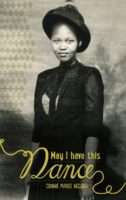I worked at the Duncan Village health centre for more than thirty-two years without being promoted, despite being more qualified than many of the white sisters who occupied management positions. These sisters were often dismissive towards me, disregarding the recommendations I made following home visits without understanding the reality of each case.
It is worth noting that, although it was the African nurses who went out on home visits, it was the white nurses who made the final recommendations about who should and should not get state support. None of them so much as set foot in a township home. All they did was read the African nurses’ reports.
I once recommended that a family receive financial support because both parents suffered from TB and were not fit for work. However, the sister-in-charge turned down their application because, she said, “They don’t look poor.” The couple had four children that they would not be able to feed without a grant. Yes, they always looked neat and wore clean clothes. What she didn’t notice was that these clothes were always the same.
I had never felt such anger as I felt at that decision. I knew I would do a better job than she did. The injustice of it all provided fertile ground for my political consciousness to grow.
By now I was a full member of the African National Congress (ANC). My home was often used as a place for people to come and refresh themselves on the way to political rallies held at the community hall just around the corner. Many important political meetings were held at that hall.
Not all the white sisters were so blinkered, of course. The sister in charge of my clinic, Sister Ethel Steele, was a pillar of strength and kindness to all. She made it her business to understand what life in the townships was like, and formed a powerful link between white charities and the people of Duncan Village. During the forced removal of families from Duncan Village to Mdantsane in the sixties, it was Sister Steele who organised a mobile clinic to reach mothers that had been relocated far from our clinic. She arranged for companies that sell baby food to donate samples and dented tins to our clinic, and also arranged a vegetable market in Duncan Village so that people wouldn’t have to pay for transport just to buy a few groceries.
We were very sad indeed when Sister Steele told us she was going home to England. Whether she was leaving to escape the Special Branch or whether she was emotionally and physically burnt out from working with East London’s poorest, most neglected communities, I will never know. One thing I do know is that white liberals were made to pay for acknowledging the humanity of the African person. People like Sister Steele were despised by the state, terrorised by the Special Branch and called derogatory terms like kaffirboetie – brother to kaffirs.
The Special Branch seemed to be everywhere in those days. They believed that the YWCA – because of its principles of justice and freedom for all – was a “disruptive” influence on the children it worked with. They severely harassed the youth and caused great turmoil in the community. Many children had no choice but to abandon their education and go into exile to join the liberation forces. In most cases, parents didn’t know whether their children had fled the country or been taken by the Special Branch. Both generations suffered incredibly.
There was not much the YWCA could do for the Duncan Village community beyond help its people develop a sense of self-esteem and leadership. It organised youth activities such as concerts, drama competitions and drum majorettes, and put together a scheme where young ones could do paid work for an hour a day during the school holidays. This scheme earned them some money to boost their confidence and help their households. It ran a soup kitchen for pensioners and, together with my clinic, started day-care centres for the elderly.
In time, I became involved with the YWCA at a regional level. Because of East London’s proximity to rural Ciskei and Transkei, the association helped train many rural women in agriculture. The migrant labour laws resulted in men leaving their families behind in the Transkei while they went to the cities in search of work. Many women were left behind in poverty, helplessly waiting for their husbands to send back what little money they were able (and willing) to spare.
The YWCA offered these women courses in animal husbandry, piggery and poultry farming as a way to improve their income and living conditions. The traditional leaders supported the initiative, giving us permission to visit and make use of the land. Working closely with the United Democratic Front, the Council of Churches and youth movements, we also ran projects that taught these women self-help skills, sewing, beadwork and even food production.


